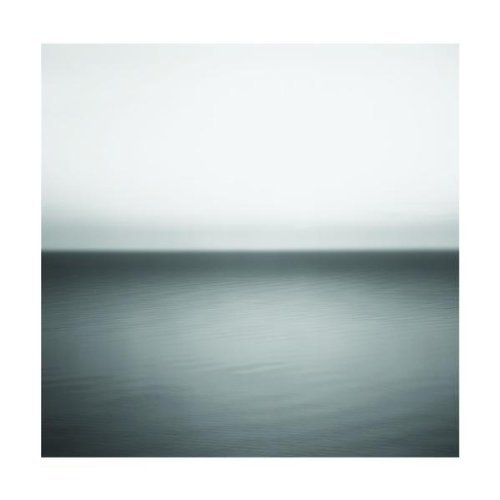This isn’t the first time U2 has been in a situation like this. Twice now have Bono and company found themselves the biggest band in the world as they hit a wall, and twice now have they broken out of such a slump with one of their very best albums. The electro-soul of the band’s 1991 high-water mark Achtung Baby was a much-needed rethink after the bloated, half-live soundtrack album Rattle and Hum found them drowning in their own popularity, unsure of where to turn. Nearly two decades later, U2’s twelfth studio album and first in five years, No Line on the Horizon, comes following two albums—2000’s All That You Can’t Leave Behind and 2004’s How to Dismantle an Atomic Bomb—that saw the band playing it overly safe, with some decent songs but no real sense of urgency. And while No Line isn’t a radical stylistic reinvention like Achtung, it does show a band reenergized and back in control.
The difference between No Line on the Horizon and U2’s previous reinventions is that the big shifts here are not in style as much as substance. It’s virtually impossible at this point for U2 to sound like anyone but themselves, and No Line sounds like a textbook U2 record. The big departure from U2’s recent work here is in the quality of the songs. The 11 tracks the group have crafted here (with the aid of longtime collaborators Brian Eno and Daniel Lanois, the duo responsible for many of U2’s finest albums, including The Joshua Tree and Achtung Baby) are some of their prettiest (“White as Snow”), poppiest (“I’ll Go Crazy if I Don’t Go Crazy Tonight”), grungiest (“Get On Your Boots”), weirdest (“Fez—Being Born”), and most majestic (“Magnificent”). Melodically, No Line on the Horizon is U2’s most satisfying album since 1997’s underrated Pop. Stylistically, it is their most interesting since 1993’s even-more-underrated Zooropa. And song for song, it is U2’s strongest and most consistent set of material since Achtung Baby.
Most importantly, U2 sound like they’re actually enjoying themselves again. Bono sounds his loosest in two decades, flirting with a dangerous falsetto on “I’ll Go Crazy if I Don’t Go Crazy Tonight,” ranting about loose electricity and taking in strangers in an almost Dylanesque half-spoken stream of consciousness on “Breathe,” and pulling out some ‘80s-style woah-woah-woah’s on the title track. He turns in his most powerful vocal since “One” on the jaw-dropping, gospel-tinged seven-minute epic “Moment of Surrender.” The Edge takes a rare honest-to-goodness solo on No Line’s standout track, the atmospheric, strangely uplifting text-message rallying cry “Unknown Caller.” His recent filming session with Jimmy Page and Jack White (for the upcoming David Guggenheim film It Might Get Loud) echoes through “Stand Up Comedy,” the funkiest U2 song since “Mysterious Ways.”
What No Line on the Horizon lacks in radical experimentation it makes up for in sheer strength of melody. The album is loose but never tossed off, joyous but never gratuitously so. U2 sound on No Line like they believe in themselves again, and as a result it is that much easier to believe in them.

